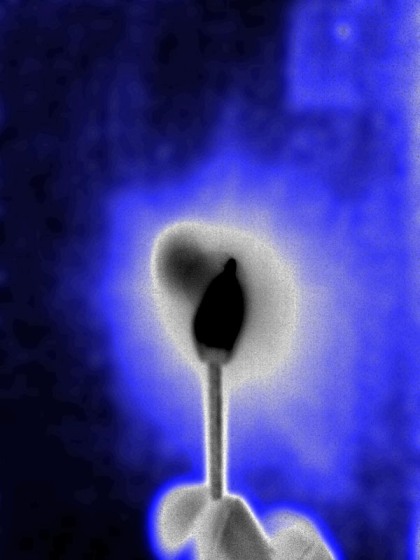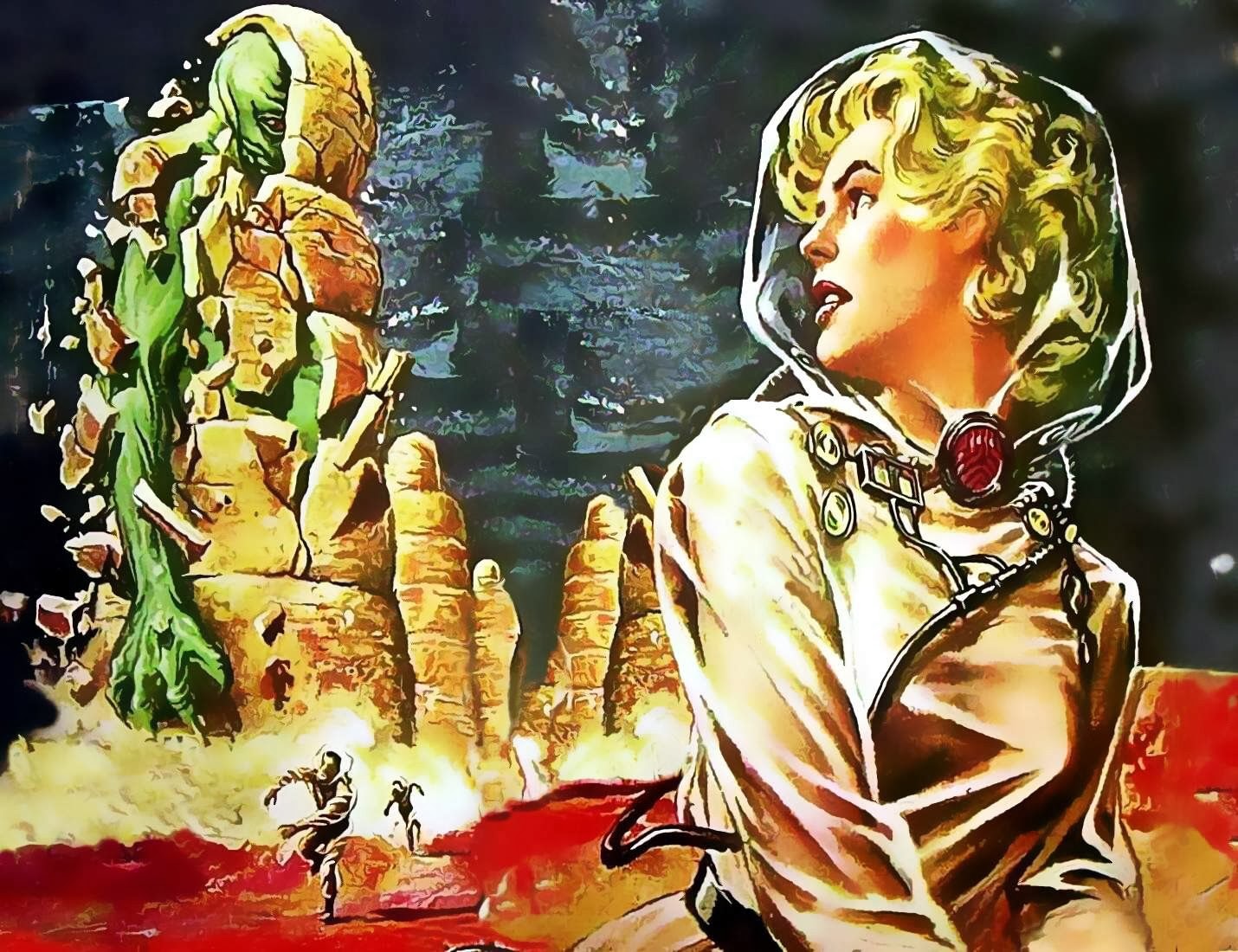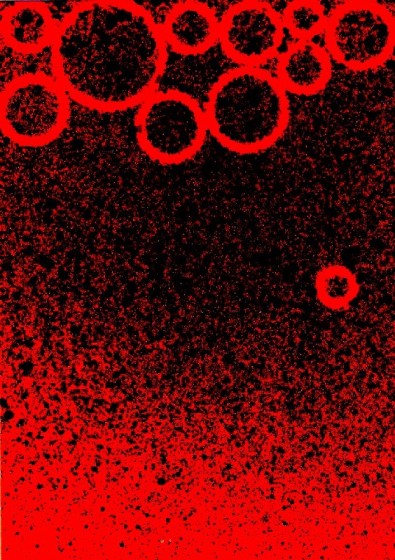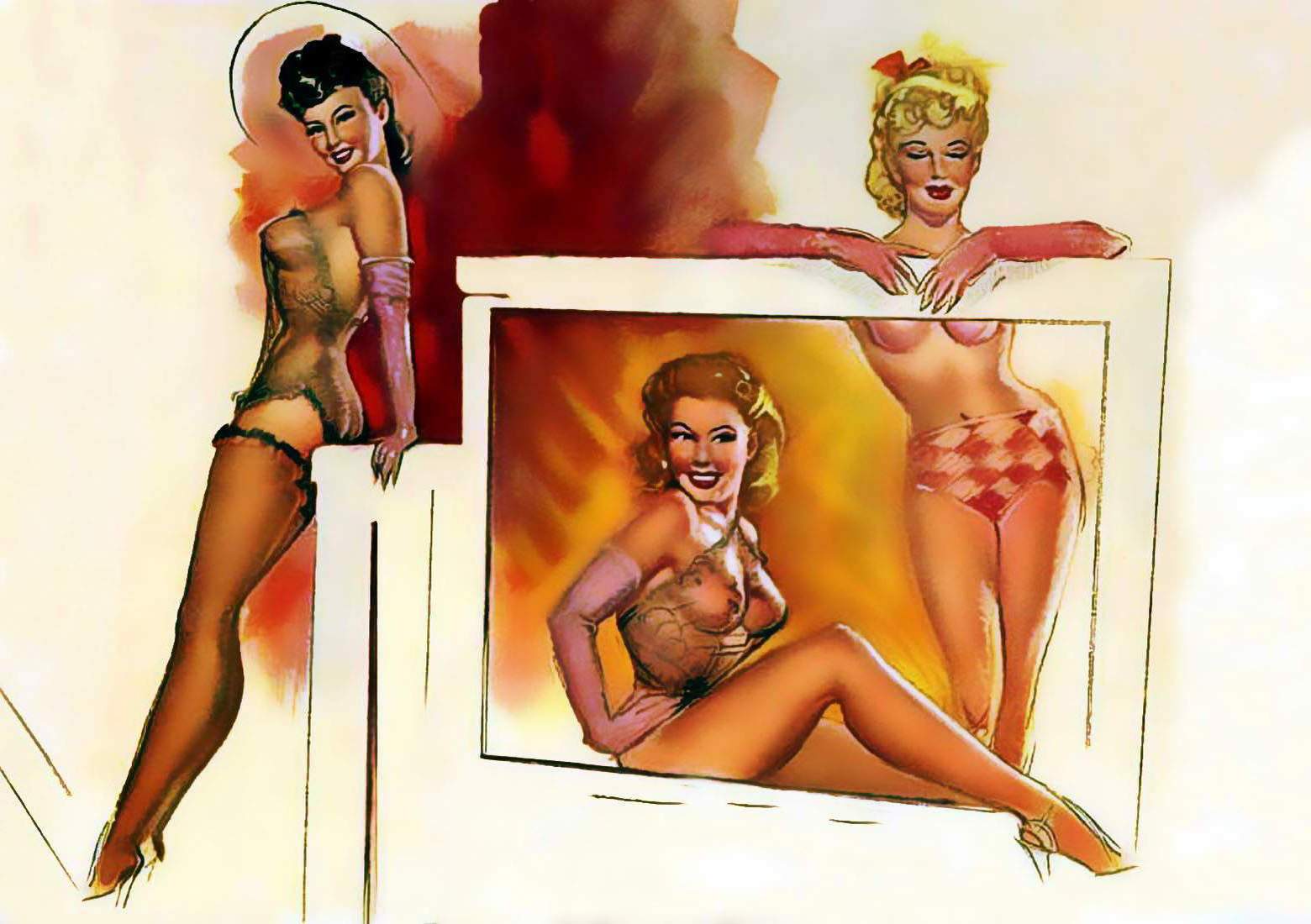Harmony by Mark Joseph Kiewlak
Editor’s Note: Support our “Storm the Bookstores: Save the Short Story” Campaign. Click on http://igg.me/p/74309?a=473765 and show your support.
Synopsis: The search for love, peace and beauty begins at home.
About the Author: Mark Joseph Kiewlak has been a published author for more than two decades. In recent years his work has appeared regularly in The Bitter Oleander, Bewildering Stories, A Twist of Noir, Wild Violet, and Cezanne’s Carrot. His story, “The Present,” was nominated for the 2010 Spinetingler Award: Best Short Story on the Web. He has also written for DC Comics.
In this delightful fable, we are reminded that global peace is possible.
* * * * * * * * * *

Harmony
by Mark Joseph Kiewlak
Gene had been studying energy patterns all his life. Decades ago humanity had believed that energy and thought and matter were all separate things. Now we knew better. But the unfolding of true understanding had only just begun.
There was a knock at the door and Gene’s son Michael entered. Gene turned away from the computer screen.
“What are you working on, Dad?”
“The Harmony Theory,” Gene replied.
Michael yawned elaborately. “I’m getting ready for Scream Night,” he said.
Gene was still doing calculations in his head and was only half paying attention to his son. Michael was used to this. So used to it that even half of his father’s attention seemed like a blessing.
“Mom said she would come with me. Will you come too?”
“Sure,” Gene said. “Sure I will.”
It was only after Michael had left the room that Gene realized he had agreed to something.
&&&
The Harmony Theory was his life’s work. This was the case with many of the world’s scientists, but unlike so many of his brethren, so much of the world in general, Gene understood the theory. He believed in it, and not just for inspirational purposes. The Harmony Theory would literally save the world. It was, in fact, our lack of understanding that had set us adrift in the first place.
Even decades ago, years after the breakthrough, humanity had still struggled to take responsibility for their own lives. Even after the energy of the universe became a measurable force, mankind did not want to accept their crucial role in its maintenance. Even Gene’s wife Willow had struggled with it on that first night he had tried to explain.
They were in his lab, watching the patterns on a subatomic level, the dance of creation, and Willow, his girlfriend at the time, was wired head to toe with emotion receptors.
“I know they say it’s true,” she said, “and I was taught this even in kindergarten, but how does the energy of my thoughts help to build or destroy the universe?”
“Watch the screen,” Gene said.
Willow complied. On the screen individual energy patterns lapped like waves on an ocean. There was color and beauty and sense to the patterns, but it was nothing she could put into words. It seemed as much art as science.
“What does this have to do with the Harmony Theory?” she had asked.
When there was no immediate reply she turned back around and saw that Gene was on one knee before her. In his palm was an engagement ring.
“You are my life,” he said to her. “Marry me, Willow. And together we’ll change the universe.”
She was in tears and nodding her assent and the moment lasted an eternity. They held each other and cried and it was only after the emotion had been fully spent that Gene gestured again toward the screen and Willow understood. The energy patterns had undergone a visible change. They were softer, yet stronger somehow. The colors were more vibrant, the flow was easier, steadier than before. It was nearly impossible to quantify but undeniably true. Love had changed the world.
&&&
“The Harmony Theory attempts to describe the relationship between what we view as our subjective reality and the ways in which we yield or do not yield to the guiding instincts of our lives. This giving of one’s self over to the fundamental sense of the universe incorporates an individual’s positive energy into the greater whole of creation and strengthens rather than impedes the flow of energy throughout all levels of being.”
Gene had studied these words, and the tens of thousands that followed, like a bible. They were a part of the original theorem written some twenty years ago by pioneer physicist/metaphysician Norris Xavier Freeman. Freeman was the first to discover a practical method for measuring an individual’s energy output as it responded in conjunction with the other forces at play in any given moment of existence. Mankind had already surmised that one’s thoughts affected the outcome of all given events, but it was Freeman who proved it to the world in a way that at least a few could understand and were willing to accept.
Gene admired this man, but he had his own interpretations of Freeman’s work. It had taken five or six generations before the world was even somewhat ready to accept the notion that we had power over all that exists, that we were not helpless and weak in the face of Nature or any other force of the cosmos, that we were, in fact, co-authors of it all, contributing our own consciousness to the greater whole and able to affect change if we so desired.
Gene found it unfathomable that we did so little with this knowledge. Hunger and war and greed had been done away with, but more often than not we still didn’t listen to what the inner voice, the greater flow, was trying to tell us. Each day was a miracle of coincidence waiting for us to notice and abide by its precepts. The messages were not hidden. They were right there in our conscious mind, but we turned always away. We were forever focused on that which we imposed upon ourselves, all that we thought we should do, our seeming obligations and methods to pain. We constantly overlaid a pattern where one already existed.
And each time we did, the world was destroyed just a little more.
&&&
“Dad, are you ready? It’s time to go.”
Gene was immersed as usual in the visual cacophony on the screen before him. At times it was beautiful. Around the holidays it was achingly, transcendently so. But usually it was a mess. And Gene knew that our ocean would never be calm until we learned not merely to row in the same direction, but to stop rowing altogether and let the waves carry us.
Gene’s son Michael appeared in the doorway. “Dad? I’ve called you six times already.”
Gene turned away from the screen. “What is it, Michael?”
“It’s Scream Night. Mom and I are ready to go. You promised to come with us. Remember?”
Gene hesitated just a moment too long before he said, “I do remember.”
Michael turned away and slammed the basement door behind him. His footfalls were heavy on the stairs. Gene felt paralyzed. His head was filled with the need for harmonious thought, but not the thoughts themselves. So-called reality worked like that. By concentrating too hard on a desire we imposed its opposite.
Frustrated, Gene spun around in his chair until he was dizzy and sick to his stomach. He’d forgotten to eat all day. Again.
“What is Scream Night?” he said.
&&&
“Thanks for coming with me, Mom.”
The crowds were beginning to gather, in every neighborhood, all around the world. Candles were held high. Michael stared up at the thirty-foot high video screens that lined the walls of the great dome on every side. There were already thousands of people milling about and more filing in each moment. At least his mother understood. This thing was meant to be a family event.
She held his hand tightly, lest one of them be carried away to the other side of the dome. “I don’t like this,” she said. “It’s hot in here and pretty scary. Can we go out into the street?”
“Sure,” Michael said. He was just glad that one of his parents was with him.
Scream Night was one of those rare events meant to unite the world. In the past, most such events had been brought about as tragedies, when the fear of extinction, the notion that humanity’s path had taken a downward turn, had caused a widespread event to manifest — a war, a plague, a global energy crisis or natural disaster. Scream Night was supposed to be different. An outlet. A time designated to stand among one’s fellow man and shout to the world all our dismay and distrust, all frustrations emptied in a single vocal burst meant to cleanse the emotional palette. Michael thought it was a cool idea, and something he desperately needed. His scream would be directed primarily at his father.
As the night air touched her, Willow smiled at her son. “I’m proud of what you’ve accomplished with your life. The harmony of your soul. You’re a kind person. And you know yourself well.”
Michael had his guard up against such praise. “Most of the time,” he said.
“Your father feels the same way about you. He’s just as proud.”
Maybe this was a bad idea, Michael thought. He didn’t want to be naked in front of everyone. Every human emotion was in play around him. He scanned the faces, the gestures of every passerby. Those open to experience were excited. Others had been dragged here, though of course nothing really occurred against our will. Michael wondered why this barrier existed between his father and himself. The idea of love between them was simply shattering, a vulnerability that neither felt they could tolerate. It robbed too much of their pain. Michael had always concentrated on living the moment itself, while his father concentrated on dissecting it. There seemed no middle ground upon which they could meet.
A momentum was gathering now. Although there was no official hour, no chosen moment designated when the scream would actually occur, it was thought that once enough people had gathered, the energy of the event would take its own course. They would scream when they were ready.
Michael and his mother were strolling along the riverbank. The water was crystalline, aglow with moonlight. The last few decades had returned a purer beauty to us, and it added patience to the soul every time it was observed. Michael felt that he could wait a little longer to scream.
“Would you rather be somewhere else?” Willow said.
His mother was smiling again and she was truly beautiful. An anger flared up, directed at his father. Nothing should ever be wasted, yet every time his father focused away from his family, her beauty went unnoticed. This was as terrible a sin as anyone committed these days, but for Michael this evolution still was not enough. He had to remind himself that harmony wasn’t about a forceful compression of our being into a preconceived paradisiacal shape. It was allowing the shape to take its own form, or no form at all.
“We have to go home,” Michael said. “I have to talk to Dad.”
&&&
Not by chance had Gene stumbled across a broadcast of the worldwide Scream Night festivities. Coverage of the event was on every channel, every wavelength of perception currently employed. Gene felt embarrassment over his ignorance of this event. A caveman would know of it, but he had not. The technology of the present allowed for multiform, multisense inundation. Gene immersed himself in the images, the sights, sounds, and smells. It was worthy of study, but more to the point Gene felt as if by participating in this limited way he was somehow rectifying his earlier behavior toward his son. He wanted so badly to share in Michael’s existence. But he had never found a way in. The boy was so ultra-sensitive, so attuned to beauty and perfection, that Gene felt as if he would always say or do the wrong thing in his son’s presence, and so he had stopped really trying. It was far easier to study the theory than to live it.
Gene began to feel a commotion arising worldwide among the participants of Scream Night. Each individual, in concentrating upon their upcoming catharsis, was contributing a minute portion of their soul’s pain to this greater whole, feeling a union with others, sharing their grief. The event was taking shape in a way no one had anticipated. For the first time in his life Gene felt truly connected to his fellow man. The emotion receptors were registering a buildup to a never-before-achieved pitch. Even those not directly involved were still being fed the thought-energy of the people closest to them, and so became mirrors for a greater universal truth — all humanity in agreement that pain was pain, and that, in order to truly evolve, mankind must learn to embrace the inherent goodness of their essential being, not so that they could win the battle with themselves, but so that they could realize that there was no battle, that nothing could hurt us if we didn’t let it.
And then, all at once, everywhere across the world, everyone began, not to scream, but to cry.
Billions of people willingly shed their anguish, the tears flowing directly from their hearts.
And Gene, as always, went to work immediately, analyzing the data. He was sure that the key to the Harmony Theory was just one intuitive leap away.
He was still wired to the emotion receptors, but the feelings of the world had become mere background noise. An equation was forming in his mind. Something that could bring it all together. He was getting closer, closer. He was almost there.
Gene heard a knock at the door and recognized his son’s voice. “Dad, do you have a minute?”
The shape upon which he was concentrating was elusive, like an image seen among the shifting clouds. If Gene turned away even for an instant he knew it would be lost forever.
“Dad? I know there’s a lot going on in the world right now, but I needed to come home to tell you something. I needed to do it right now, because I might not be able to do it later. I don’t know how long my courage will last.”
Gene could see it beginning to form. He knew that his life’s work was mere seconds from realization. He would unlock the key that would end all suffering and put mankind forever upon the path to total unity and brotherhood. Everlasting peace.
“Dad?”
Gene turned away from the computer screen. It was the easiest decision he had ever made. His son was talking.
“What is it, Michael?”
“I just wanted to say that I love you, Dad.”
“I love you too, son.”
And behind Gene’s back, unseen and unrecorded, the harmony readings went off the chart.
**** THE END ****
Copyright Mark Joseph Kiewlak 2012
Image Courtesy: “Pluck the Aura” by Ujjwal Dey



